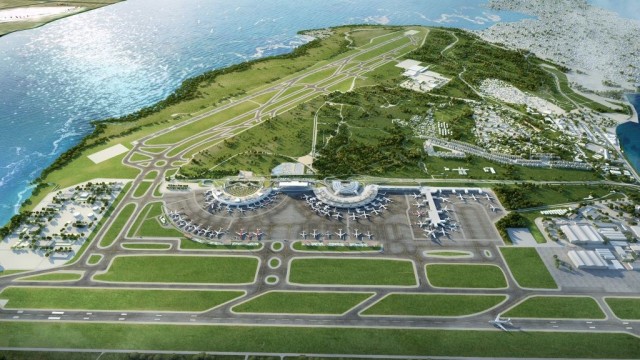The project, however, still depends on environmental permits
01/17/2023

Maraey — a tourism-residential project run by foreign investors in Brazil — has reached an agreement with Marriott International to build three hotels on the property, located in Maricá, Rio de Janeiro state. In total, R$ 2.3 billion in investments are planned for the three structures. With the agreement, the U.S. hotel chain promises to launch the Ritz-Carlton Reserve luxury brand in South America.
Maraey is devised by IDB Brasil, a company that owns 840 hectares of land and will own the hotels. The company is formed by a group of Spanish, Brazilian, American, and Chinese businessmen, led by the Cetya and Abacus groups. Their activities are mainly in construction through the development of real estate and hotel projects. The company in charge of the construction is still to be defined.
The plan is ambitious, since the Brazilian hotel market has difficulty attracting large luxury brands due to issues such as exchange rates and unprofitable tariffs. In Rio, one of the main luxury brands today is Fasano, which is national.
It was only last year that Marriott brought the first JW Marriott unit to Brazil — opened in São Paulo, in the building formerly occupied by the Four Seasons. The company will also give its name to one of Maraey’s hotels. The Rio de Janeiro version of the JW Marriott will be one of the first of the hotel group to adopt the “all-inclusive” model (tourists pay a daily rate that includes all expenses inside the hotel).
A theme hotel called Rio Autograph Collection is also planned, the first with the Rock in Rio music festival brand.
The hotels will have more than 1,100 rooms altogether, all operated by the U.S. giant. Maraey’s final project foresees one more hotel, which is still under study.
“In association with the hotels, we foresee the offer of 244 exclusive branded residences (villas, duplexes, and apartments),” Emilio Izquierdo, Maraey CEO, told Valor. In total, 80 will use the Ritz-Carlton Reserve brand and the rest will be under the JW Marriott brand.
“We are creating a unique tourist destination in this strategic market for us, which is Brazil,” says Laurent De Kousemaeker, head of development for Marriott International. The forecast is to start construction in the second half of this year. The group is now seeking permits from the Environmental Institute of Rio de Janeiro and a construction permit from the city hall.
Mr. Izquierdo said that after the agreement with Marriott, the group will launch in the next months a hotel real estate fund focused on qualified investors to raise funds. The idea is to also seek international contributions. About 40% of the project should be raised through the fund, and the rest will come from debt. “We are studying the support of banks such as the development bank BNDES and IDB, and we also believe in the support of other financial institutions”, he said.
According to De Kousemaeker, the luxury lodging sector in Brazil is still evolving. “In markets where we do not observe an oversupply problem, we already see potential to induce new demand and some luxury hotels achieve high rates in local currency, when compared to other destinations in the region,” he said.
Despite its natural beauty and strong culture, Brazil has been unattractive to international tourism. According to data from the World Tourism Organization, Brazil ranked number 49 in 2018 in the number of international tourists, with 6.6 million. France, which leads the ranking, received 89 million that year.
The entire Maraey project encompasses 840 hectares, 6.6% of it with buildings. The total private investment will be around R$11 billion. The idea is that it will become a true luxury city, with more than 8,000 high-standard homes and services.
*By Cristian Favaro — São Paulo

